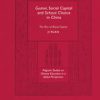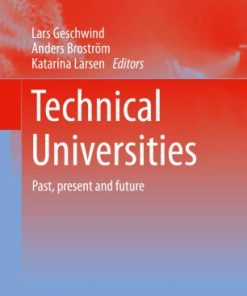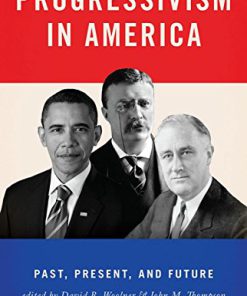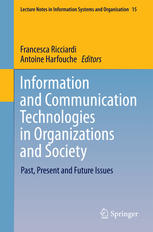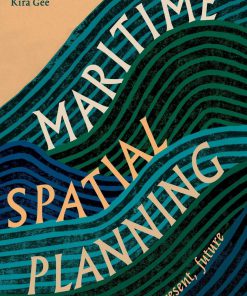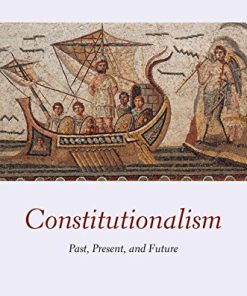Schools in Transition Linking Past Present and Future in Educational Practice 1st Edition by Pauli Siljander, Kimmo Kontio, Eetu Pikkarainen 9463008273 9789463008273
$50.00 Original price was: $50.00.$25.00Current price is: $25.00.
Schools in Transition Linking Past Present and Future in Educational Practice 1st Edition by Pauli Siljander, Kimmo Kontio, Eetu Pikkarainen – Ebook PDF Instant Download/DeliveryISBN: 9463008273, 9789463008273
Full download Schools in Transition Linking Past Present and Future in Educational Practice 1st Edition after payment.
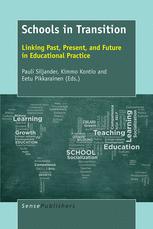
Product details:
ISBN-10 : 9463008273
ISBN-13 : 9789463008273
Author: Pauli Siljander, Kimmo Kontio, Eetu Pikkarainen
School is one of the most focal institutions in modern society. It is largely through the institutionalized forms of education that modern society attempts to secure and maintain its social and economic well-being and its valuable cultural life forms. In addition to this, school is the essential institution through which the future of a society is defined. Thus, at least when understood traditionally as a pedagogical institution, the school stands at the center of historically and socially constructed cultural life forms and at the brink of an unknown future: the determination of that future characterizes the pedagogical task of the school. It naturally ensues then, that modern discourses of the school have always been intertwined with the critical question of how past, present and future can be linked in educational practices so that schools can foster (in ever better ways) the well-being of individuals, societies and humanity. The chapters in this volume, despite the variety ofviewpoints, share this critical view. The purpose of the volume is not to offer definite answers; rather it is to stress that to understand the role and functions of school in contemporary society and to orientate its transition, a well-founded critical evaluation of prevailing pedagogical practices and policy trends is required. This evaluation is vital for the future of school and society.
Schools in Transition Linking Past Present and Future in Educational Practice 1st Table of contents:
1. A MODERN IDEA OF THE SCHOOL
WHAT IS SCHOOL – A SHORT HISTORICAL INTRODUCTION
OVERVIEW OF THE CONTENT OF THE BOOK
Functions of the School: Theoretical Issues
School, Learning and Teaching
School, Economics and Labor Markets
School and School Reform – National Perspectives
School, Utopias and Future
REFERENCES
SECTION I: FUNCTIONS OF THE SCHOOL: Theoretical Issues
2. A PHILOSOPHICAL SCHOOL FOR OUR TIME: Thinking with Plato after Dewey
WHY PLATO IS A CONTEMPORARY WHO SPEAKS TO THE MEANING OF SCHOOL
THE SCHOOL AS A PLACE OF AND FOR THOUGHT
AN EDUCATION IN THE EMBODIED ARTS
CONCLUSION: SOCRATES GOES TO SCHOOL
REFERENCES
3. AXEL HONNETH ON ROLE, FORM AND RESULTS OF PUBLIC EDUCATION REVISITED
INTRODUCTION
THE ROLE OF PUBLIC EDUCATION
THE FORM OF PUBLIC EDUCATION
THE RESULTS OF PUBLIC EDUCATION
CONCLUDING REMARKS
REFERENCES
4. WHAT ARE UNIVERSITIES FOR?: From the Community of the Selves to the Transformative Potential of H
SEARCHING FOR THE IDEA(L)
THE RISE OF THE UNIVERSITY, HUMBOLDT AND THE IDEAL OF UNIVERSITY AS BILDUNG
IS SEEKING THE IDEALS OF BILDUNG AND UNIVERSITY NOTHING BUT ‘SPIRITUAL MISSION’?
PROBLEMS AND CHALLENGES FOR UNIVERSITY IN THE LATE-MODERN PLURALITY, AND COMING BACK TO THE COMMUNIT
REFERENCES
SECTION II: SCHOOL, LEARNING AND TEACHING
5. SCHOOLS AND THE NEW LANGUAGE OF LEARNING: A Critical Perspective
INTRODUCTION
THE NEW THEORIES OF LEARNING AND THEIR IMPACT AND APPLICATIONS ON EDUCATION
THE PROCESS OF EDUCATION AND THE NEW LANGUAGE OF LEARNING
EDUCATIONAL INSTITUTIONS AND THE NEW LANGUAGE OF LEARNING
DISCUSSION
REFERENCES
6. THE PARADOX OF BEING A TEACHER: Institutionalized Relevance and Organized Mistrust
THE IMPORTANCE OF TEACHERS AND THEIR DISTURBING FALLACIES
PESTALOZZI AND SKINNER: THE URGENT SOCIAL NEED FOR EDUCATIONAL EFFECTS
GOD’S DEPUTIES, SUBSTITUTES, AND IMITATORS: MOTHERS, PSYCHOLOGISTS, AND RESEARCHERS
THE INFINITE SMALL LEARNING STEPS AND THE INFALLIBLE PROGRESS
TEACHERS AND SCHOOLS
NOTE
REFERENCES
7. SCHOOL LEARNING AS HUMAN GROWTH: Modal Dynamics of Learning
INTRODUCTION
SCHOOL AS BRIDGE TO A SECOND NATURE
HUMAN GROWTH AND LEARNING
MODAL DYNAMICS OF LEARNING AND ACTION
CONCLUSIONS
NOTES
REFERENCES
SECTION III: SCHOOL, ECONOMICS AND LABOR MARKETS
8. THE STATE, MARKET AND EDUCATION
THE JUSTIFICATION FOR THE PUBLIC FUNDING OF EDUCATION
ABOUT THE PROVISION OF EDUCATION
CONCLUSION
NOTES
REFERENCES
9. PRODUCTIVITY, EFFECTIVENESS, EFFICIENCY BASIC CONCEPTS OF THE ECONOMICS OF EDUCATION
PRELIMINARY REMARK
THE CONCEPT OF PRODUCTIVITY
Labour Productivity
Capital Productivity
Total Factor Productivity
Perspectives of Observation
Levels of Observation
OBJECTS OF OBSERVATION
Output Measures of Successful School Education
Inputs in and Productivity Indicators of Successful School Education
Productivity Ratios in Higher Education (teaching and learning)
Productivity Ratios with Respect to Research and Transfer
Output Measures with Respect to (Adult) Continuing Education
Inputs in and Productivity Indicators of (Adult) Continuing Education
Gross Versus Net-Output (value added)
THE EFFECTIVENESS CONCEPT
THE EFFICIENCY CONCEPT
The Microeconomic Efficiency Concept
THE PECULIARITIES OF THE EDUCATIONAL PRODUCTION
The Macroeconomic Concept of Efficiency
NOTES
10. THE ECONOMIC PAYOFF TO INVESTING IN EDUCATIONAL JUSTICE
IMPROVED KNOWLEDGE OF COSTS AND EFFECTS
CALCULATING THE RETURNS TO INVESTING IN EDUCATIONAL EQUITY
HIGH SCHOOL COMPLETION AS A MINIMUM
EDUCATIONAL INTERVENTIONS
PUBLIC COSTS OF THE INTERVENTIONS
PUBLIC BENEFITS OF THE INTERVENTIONS
Education and Increased Tax Revenues
Health Benefits
Crime Benefits
Welfare Benefits
THE RETURNS ON INVESTMENTS IN ADEQUATE EDUCATION
SENSITIVITY TESTS
CONCLUSIONS
ACKNOWLEDGEMENTS
NOTES
REFERENCES
SECTION IV: SCHOOL AND SCHOOL REFORM – NATIONAL PERSPECTIVES
11. SCHOOL IN TRANSITION: The Case of Finland
INTRODUCTION
BILDUNG: THE POWER OF A SMALL COUNTRY
BILDUNG AND THE FINNISH WELFARE STATE
Ideological Goals: Economic Growth and Societal Equality
Pedagogical Principles: Paradigm Shift I
THE CRISIS OF THE WELFARE STATE AND A POLICY CHANGE IN EDUCATIONAL POLITICS
An Ideological Turning Point in Educational Policy: International Competitiveness
Pedagogical Principles: Paradigm Shift II
ECONOMIC RECESSION AND DEVELOPMENT IN RECENT YEARS
The ‘new pedagogics’ or Mixed Principles: Paradigm Shift III
SUMMARY
NOTES
REFERENCES
12. THE TRANSFORMATION OF SCHOOL IN A CHANGING SOCIETY – A GERMAN EXAMPLE
On the Impetus for Change within the German Education System
National Education Standards and Test-Based Skills Monitoring – The Road to Better Schools?
School Assessment: Measured Education
Excessive Expectations of Performance Enhancement at Schools
Evaluation with Class
Rowing the State’s Boat without Rocking it
Summary and Outlook for the Development of Schools
NOTE
REFERENCES
13. “IT TAKES A VILLAGE” – (CATHOLIC) EDUCATION IN THE 21ST CENTURY
BILDUNG IN THE 21ST CENTURY: EDUCATION OR TRAINING?
German School Reforms in the Aftermath of PISA 2000
Rise of Private Schools in Germany
DOING THINGS DIFFERENTLY
CATHOLIC SCHOOLS IN GERMANY AFTER 1945
CALLED TO BE FREE: THE “MARCHTAL PLAN”
CONCLUSION: IT TAKES A VILLAGE
REFERENCES
14. SCHOOLING VIS-À-VIS LEARNING: The Case for Reducing Compulsion
INTRODUCTION
THE PRAGMATIC CASE FOR COMPULSORY SCHOOLING
THE LOGIC OF LIMITING COMPULSORY SCHOOLING
SCHOOLS AS PART OF THE SOCIAL FABRIC
SCHOOLS AS SITES FOR MEANINGFUL LEARNING
What is Learning?
Can Schools Be Rich Learning Environments?
Is School More Empowering Than Disempowering?
HOW SHOULD THE APPROPRIATE LEVEL OF COMPULSION IN SCHOOLING BE ARRIVED AT?
SQUARING THE CIRCLE: BALANCING THE COSTS AND BENEFITS OF COMPULSORY SCHOOLING
Adults, Children and Rationality
The More School, the More Learning?
Compulsory Schooling: Diminishing Returns?
SOME MODEST PROPOSALS
The Tipping Point
Redefining of Educational Boundaries: The Case of England
REFERENCES
15. SCHOOL REPRESENTATION IN CURRICULUM POLICIES
INTRODUCTION
Policy and Representation
School Representation in Curriculum Policies: Some Convergences
Convergence 1: School as social redemption and the importance of knowledge
Convergence 2: The school AS the place of absence
Convergence 3: The [desired] school, locus of policy application
Convergence 4: The school as a place of authentic experience of teachers
Closing Words
NOTES
REFERENCES
SECTION V: SCHOOL, UTOPIAS AND FUTURE
16. THE HISTORY OF EDUCATION AS THE HISTORY OF WRITING: A Look from the Past to the Future
Method: Materiality and Cultural Techniques
Symbolic Cultural Techniques ca. 2000 B.C.E.
Implications & Conclusions
NOTES
REFERENCES
17. THE EMANCIPATION OF CHILDREN
THE HUMAN CAPITAL THEORY AND ITS BLIND SPOT
THE EMERGENCE OF CHILDHOOD
THE RADICAL SOLUTION
ELEMENTS OF EMANCIPATION
RIGHTS
CONSEQUENCES
A UTOPIAN CONCLUSION
REFERENCES
18. TENSIONS AND CONTROVERSIES OF SCHOOL DEVELOPMENT – SOME REMARKS
NOTES
REFERENCES
NOTES ON CONTRIBUTORS
People also search for Schools in Transition Linking Past Present and Future in Educational Practice 1st:
new school transition
why are transitions important in the classroom
transition between school/post school
school transitions beginning of the end or a new beginning
school transitions whenever they occur
Tags: Schools, Transition Linking, Past Present, Educational Practice, Pauli Siljander, Kimmo Kontio, Eetu Pikkarainen
You may also like…
Education Studies & Teaching
Politics & Philosophy
Progressivism in America : past, present and future 1st Edition David B. Woolner
Computers - Applications & Software
Education Studies & Teaching - School Education & Teaching
Politics & Philosophy - Social Sciences
American Prisons: Their Past, Present and Future 1st Edition David Musick
Science (General)
Jurisprudence & Law - Constitutional Law
Constitutionalism Past Present and Future 1st Edition by Dieter Grimm ISBN 0198840497 9780198840497



